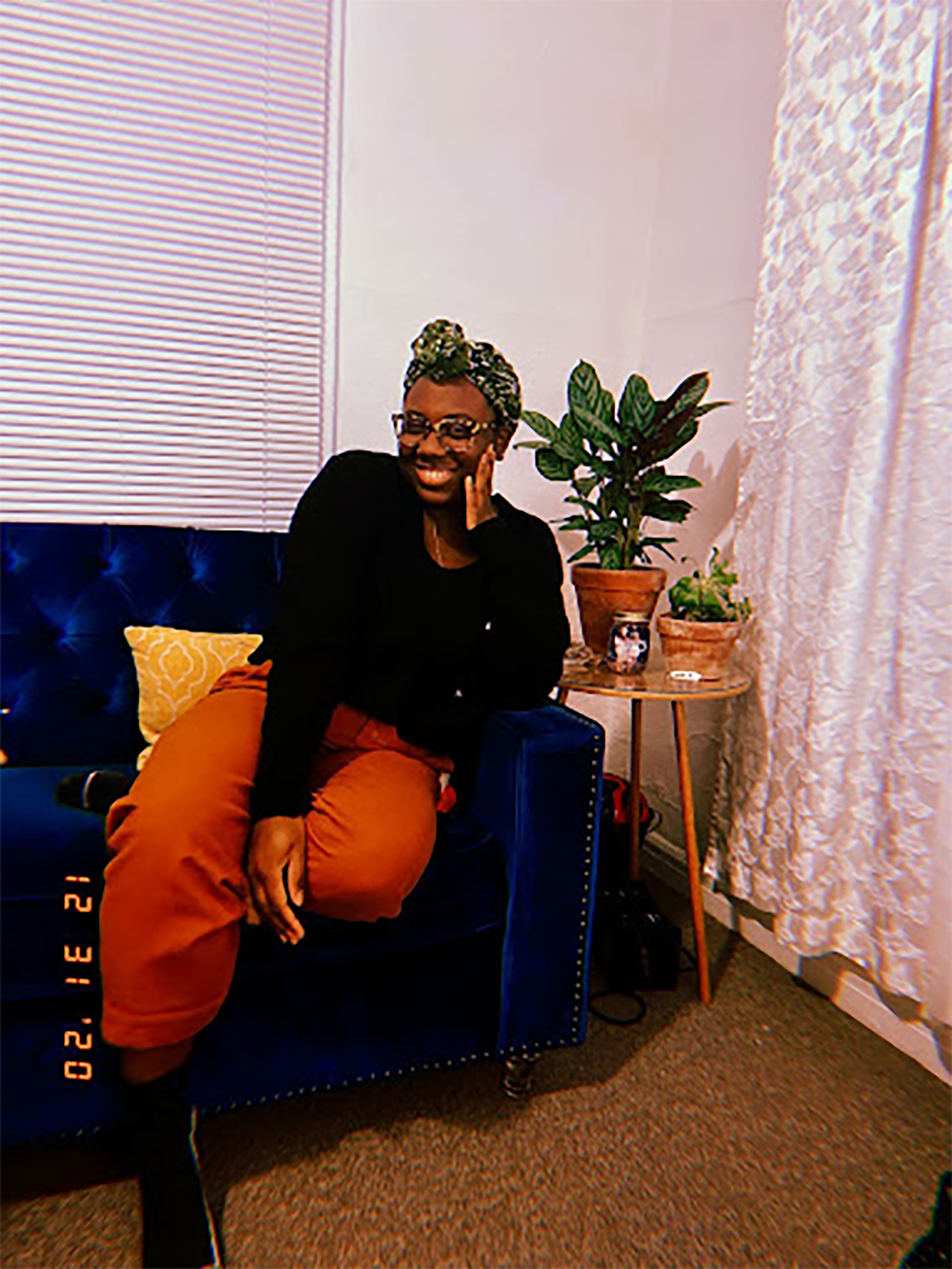
Photo Credit: Elias Williams
︎
![]()
Anaïs Duplan is a trans* poet, curator, and artist. He is the author of book I NEED MUSIC (Action Books, 2021), a book of essays, Blackspace: On the Poetics of an Afrofuture (Black Ocean, 2020), a full-length poetry collection, Take This Stallion (Brooklyn Arts Press, 2016), and a chapbook, Mount Carmel and the Blood of Parnassus (Monster House Press, 2017). He is a professor of postcolonial literature at Bennington College, and has taught poetry at The New School, Columbia University, and Sarah Lawrence College, amongst others.
As an independent curator, he has facilitated curatorial projects in Chicago, Boston, Santa Fe, and Reykjavík. He was a 2017-2019 joint Public Programs fellow at the Museum of Modern Art and the Studio Museum in Harlem, and in 2021 received a Marian Goodman fellowship from Independent Curators International for his research on Black experimental documentary.
He is the recipient of the 2021 QUEER|ART|PRIZE for Recent Work, and a 2022 Whiting Award in Nonfiction. He was also awarded a Black Visionaries Award by Instagram and the Brooklyn Museum in 2022. In 2016, Duplan founded the Center for Afrofuturist Studies, an artist residency program for artists of color, based at Iowa City’s artist-run organization Public Space One.
Check out his portfolio for more
Follow them on Instagram ︎
Download An’s headshot and bio
As an independent curator, he has facilitated curatorial projects in Chicago, Boston, Santa Fe, and Reykjavík. He was a 2017-2019 joint Public Programs fellow at the Museum of Modern Art and the Studio Museum in Harlem, and in 2021 received a Marian Goodman fellowship from Independent Curators International for his research on Black experimental documentary.
He is the recipient of the 2021 QUEER|ART|PRIZE for Recent Work, and a 2022 Whiting Award in Nonfiction. He was also awarded a Black Visionaries Award by Instagram and the Brooklyn Museum in 2022. In 2016, Duplan founded the Center for Afrofuturist Studies, an artist residency program for artists of color, based at Iowa City’s artist-run organization Public Space One.
Check out his portfolio for more
Follow them on Instagram ︎
Download An’s headshot and bio


Studio Art Grime Destroy (a.k.a. Studio AGD) was formed in 2022. The studio consists of Anaïs Duplan and his co-creator/studio manager, Folasade Adesanya.
Anaïs dreamt of a group structure that both employs artists––in this case as studio managers––and that allows for collaboration and the growth of his employees in their personal artistic pursuits. We are not an artist collective due to the employer/employee relationship, yet this structure provides benefits outside of traditional work as a studio manager, like opportunities for co-ideation and creative partnership, as well as access to resources that would otherwise be inaccessible. Anaïs’ vision for Studio AGD continues to evolve as they work with Folasade on determining how a studio practice of this sort can enhance and inspire their own practices.
Studio AGD shares an intention to move to the rhythm of resonance. We value the slowness of discernment in our collective ideating, decision-making, and creative execution. Our studio structure operates flexibly, making space for the unique skills, perspectives, offerings that each member contributes to our collective eureka. Our approach to collaboration aims to utilize our independent strengths to establish creative grammars together while encouraging collective growth. The multi-genre and trans-disciplinary nature of our collective work creates routines that support the cultivation of experimental creative practice.
folasade adesanya is a studio manager at Studio AGD and a blooming neuro/quirky queer agender writer, curator, and independent scholar. Their work is deeply aligned with their spiritual practice, with projects that source from queer Afro-diasporic archives, oral histories, and inherited knowledge. Their current projects include intuitive prose poetry; speculative non/fiction that pieces together Black QTGNC care communities in pre-Civil Rights eras; and unspooling the stories of her lineage. She has been published in MN Women’s Press, and is currently editing her first zine titled sacred is the place you touch, to be published in early 2024.
Folasade founded The Black Syllabus in 2019. They are also an emerging flower farmer and beekeeper hoping to grow toward homesteading in the near future. She was born and raised in the Bay Area, currently rooted in the Twin Cities with her cat Parsley.
Folasade founded The Black Syllabus in 2019. They are also an emerging flower farmer and beekeeper hoping to grow toward homesteading in the near future. She was born and raised in the Bay Area, currently rooted in the Twin Cities with her cat Parsley.


